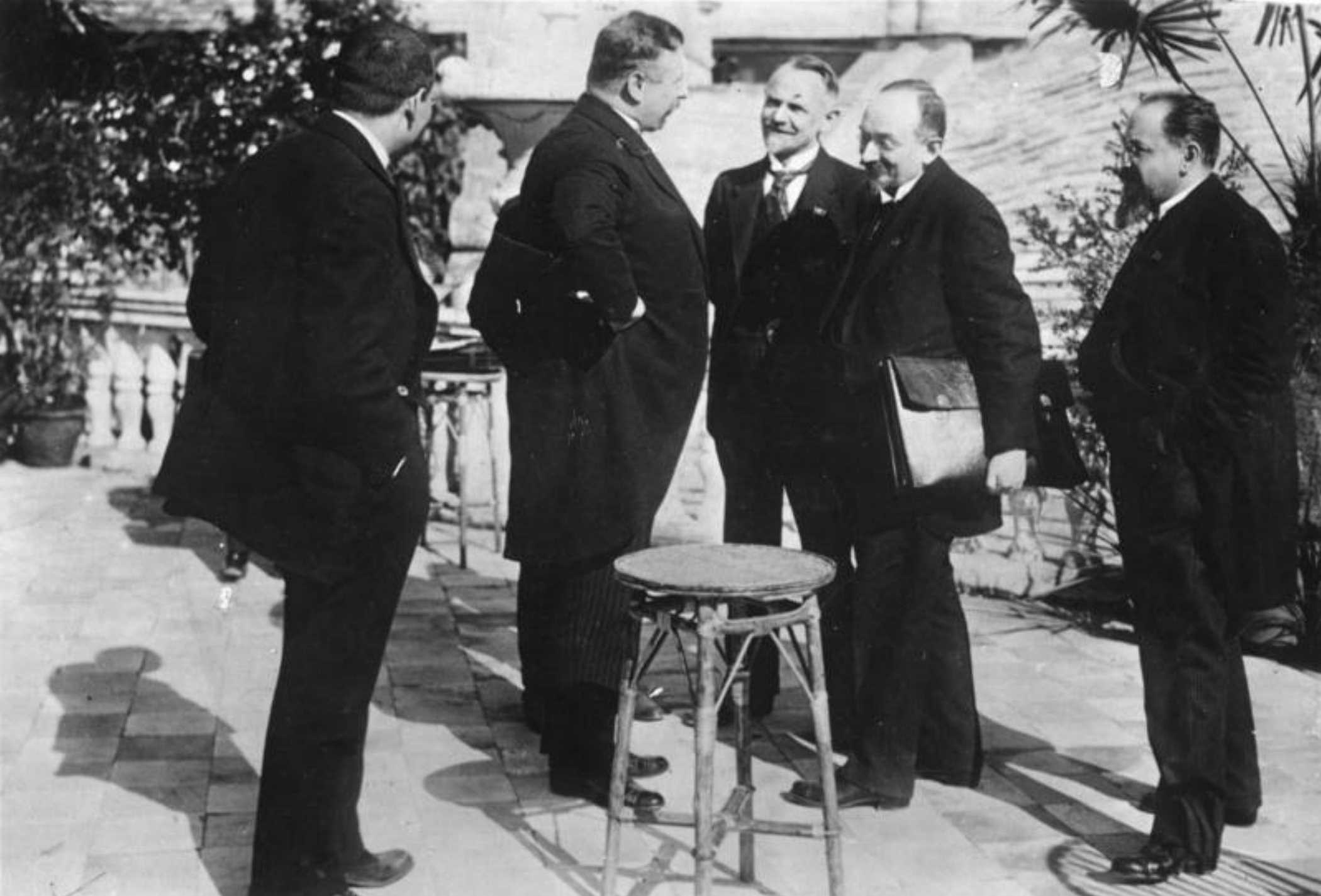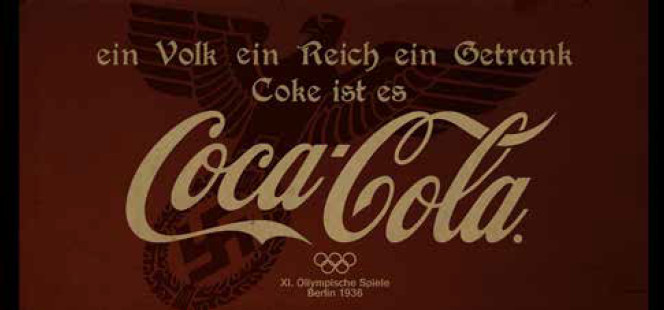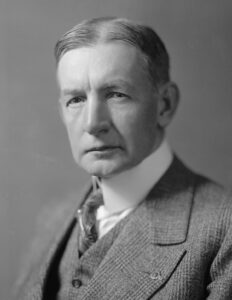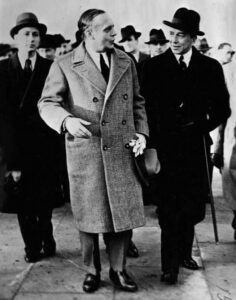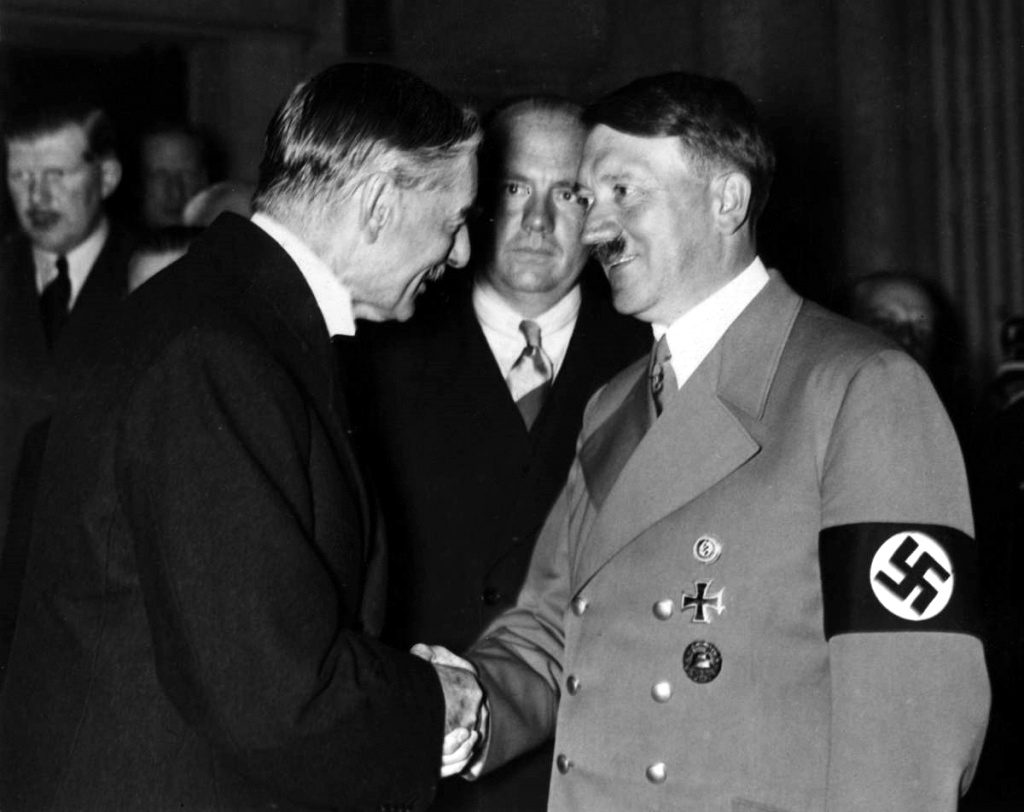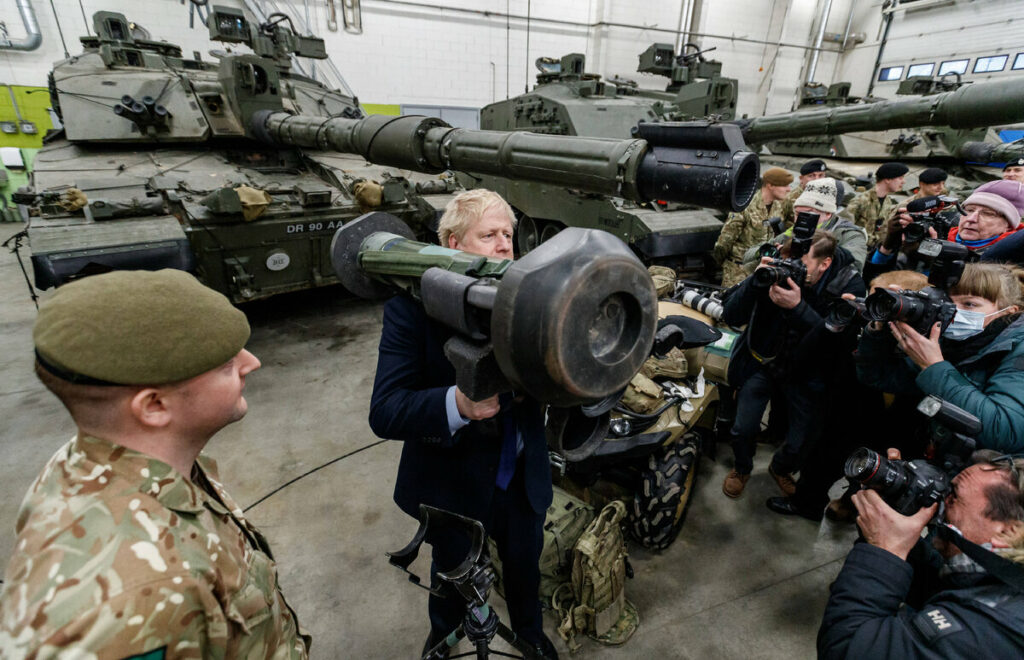Dmitry Medvedev, the vice-Chairman of the Security Council of the Russian Federation, published on the 9th of May 2024 – The Victory Day – an extensive article with 5 questions, addressed to the former allies. The publication was made in the form of a PDF file at the site of the Security Council. Here we present a translation of the article. Special thanks to Denis Efremov from Putinger’s Cat Telegram channel for drawing our attention to this publication and facilitating its translation.
How the Anglo-Saxons Promoted Fascism in the 20th Century and Revived It in the 21st
FIVE HISTORICAL QUESTIONS FOR OUR FORMER ALLIES
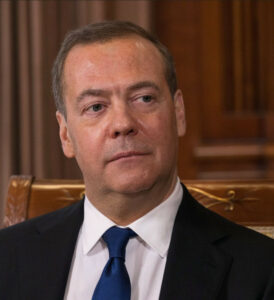 Return to the most inhuman and odious ideologies of the past became the historical nonsense of the 21st century. Fascism was vanquished almost eight decades ago. Finally and irrevocably, as it seemed back then. The Nuremberg Tribunal handed down the verdict to its leaders and accomplices. For many years, even the demonstration of Nazi symbols, not to mention other symbols and ideas of Hitlerism, was legally prohibited in the world. The United Nations and all international institutions acting in accordance with its Charter had their weighty say at that time.
Return to the most inhuman and odious ideologies of the past became the historical nonsense of the 21st century. Fascism was vanquished almost eight decades ago. Finally and irrevocably, as it seemed back then. The Nuremberg Tribunal handed down the verdict to its leaders and accomplices. For many years, even the demonstration of Nazi symbols, not to mention other symbols and ideas of Hitlerism, was legally prohibited in the world. The United Nations and all international institutions acting in accordance with its Charter had their weighty say at that time.
However, in the new millennium, we are forced to fight the reincarnation of fascism, its zombie spawn, which embodies the disgusting and cynical great-grandson of Hitlerism – the Nazi regime of Kiev. To live in a world that our opponents are furiously striving to turn upside down, split and burn in the conflagration of the Third World War. At the same time, any normal person cannot but be angered and outraged by what the collective West is doing these days – the United States, Great Britain and other countries of the “Anglo-Saxon part” of the planet, along with their vassals and accomplices.
Our former World War II allies enthusiastically feed, stuff with weapons and incite the new Nazis, whose goal is to erase Russia from the map, and force the whole world to live according to gangster concepts, forgetting about the postulates of international law. While the remnants of the “forest brothers”(a) are choking on their Russophobia in the underdeveloped European states, the major Western powers are waging a hybrid war against us, imposing blockades and sanctions regimes, allocating billions to purchase weapons for neo-Nazis. Staging provocations and unprecedented bloody terrorist attacks by the hands of scoundrels, destroying entire cities and hundreds of civilians. In fact, today Washington and Brussels are acting with greater cynicism and scope, than Hitler and his accomplices in the 1930s and 1940s. All this is crudely interspersed with lamentations about “helping the weak” and calls for the “restoration of democracy”, as well as threats to start a full-fledged war with Russia.
Those who shook hands on the Elbe, landed in Normandy, participated in the resistance movement in the territories of European countries occupied by Germany and its allies could not have imagined such a thing in the worst of their nightmares. Those soldiers who found mountains of ashes near the furnaces of the liberated Auschwitz or Mauthausen. Those residents of peaceful European cities who brought flowers year after year to the monument to the Russian Alyosha on Bunardzhik Hill in Plovdiv, Bulgaria, to the obelisks on Mount Gellert in Budapest and in Berlin’s Treptow Park.
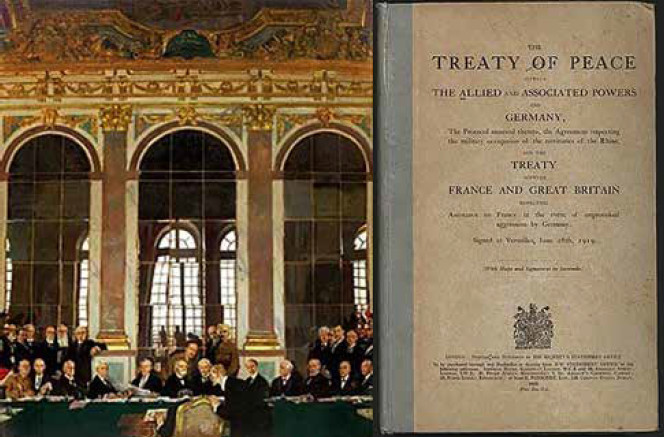
The peace treaty signed in the Mirror Gallery of the Palace of Versailles did not bode well for either the victorious powers in the First World War or the loser Germany.
There is no way to get rid of the feeling that, together with the elderly leaders of the United States, the statesmen of modern Europe have finally fallen into irreversible dementia. But no. Looking back, we can conclude with absolute certainty: the memory of our former allies is simply excellent, they hold up the traditions with top marks. Nazism did not come out of nowhere. At one time, it was our imaginary allies who actively helped it to be born and establish itself so as in the future to give it command: “Attack!”. The Anglo-Saxons created a breeding ground and support for Hitlerism at the turn of the last century and the century before last. And then, they were feeding and nurturing it like a bastard, with whose hands they were going to achieve their goals in the near future, and then throw it away as it became unnecessary. Just as its current successors. Everything repeats itself, except with an allowance for technological progress, the geopolitical context and other signs of the new time.
It is very important to understand who we are dealing with now, what we are fighting right up to the victorious end and complete rout. Let us recall and compare historical facts. And let us address five simple questions to the Anglo-Saxons.
QUESTION ONE: WHO BENEFITED FROM FASCISM?
After the defeat in the First World War, following the results of the Treaty of Versailles in 1919, many serious restrictions were imposed on Germany. They concerned the size of the German army, the military industry, and a fairly wide range of weapons. In addition, the aggressor (although it itself was devastated by the war) had to pay reparations to the winners in order to compensate for the damage caused. Under such conditions, the Third Reich would never have been able to rearm its army without relying on close cooperation with external forces. Revanchist and other ultra-radical sentiments, the ideas of forming a “new world order” led by the Aryan race do not bring money by themselves and without the financial support remain just words. The “Aryans” received the money for the implementation of their plans from the Anglo-Saxons.
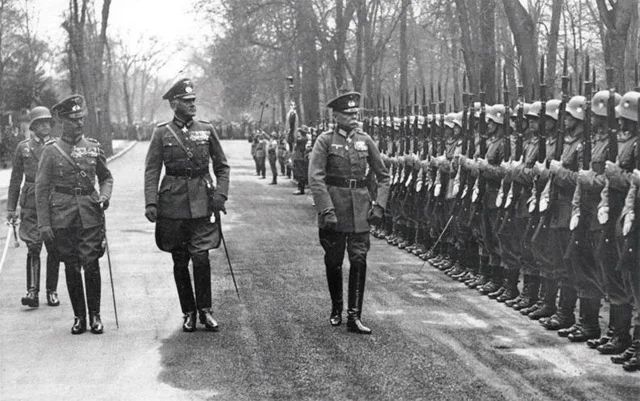
Some German generals, remembering the lessons of history, did not want to fight with Russia any more. But the authorities of the Third Reich did not listen to them. The creator of the Reichswehr, H. von Seeckt (first from right), in front of the guard of honour on the occasion of his 70th birthday with G. von Rundstedt (third from right), commander (until December 1941) of Army Group South during the Great Patriotic War. April 1936
Why did the “benefactors” need these expenses? You don’t have to look far for the motives. One hundred years ago, all the efforts of Western countries were aimed at neutralizing the “red threat” emanating from Soviet Russia. And they sincerely believed that Germany could rightfully become a bastion of the West against Bolshevism. During a conversation with Hitler in November 1937, the Lord Chairman of His Majesty’s Privy Council, E. Halifax (who became British Foreign Minister a few months after this meeting), without skimping on emotions, said that “the Führer achieved a lot not only in Germany itself – as a result of the destruction of communism in his country, he blocked its path to Western Europe”(1). In the old days, the military-political factor played a fundamental role in global rivalry. After 1917, slogans became no less dangerous weapons. The idea of world unity of the working class, the right of nations to self–determination proclaimed by the Bolsheviks – all this found a warm response in other countries, gained whole cohorts of followers. This posed a direct risk both to the domestic political situation in the European countries and to the established practice of exploiting overseas territories.
To prevent these processes, first it was necessary to conquer the German economic, political, strategic and ideological bridgehead. Even after the defeat in the war, this country retained its industrial potential and human capital. And in the future, it could significantly affect the balance of power on a global scale.
The Anglo-Saxon elites set themselves the task of preventing – by hook or by crook – the strengthening of relations between Moscow and Berlin, and inciting Germany against the USSR Union created at the end of 1922. The United States and Great Britain, with their plans for world domination (and not at all peace and tranquillity in Eurasia), were unprofitable, moreover, the rapprochement and cooperation of the Weimar Republic and Soviet Russia was deadly dangerous. In this case, the Anglo-Saxons would lose key positions in their areas of interest. The Rapallo Treaty of 1922, concluded by Russia and Germany during the Genoa Conference. and their subsequent steps towards partnership in the military-technical and industrial fields strengthened the possibility of forming a pact against the Anglo-Saxons. Additionally, at that moment, in the ruling circles of Berlin there were quite a lot of supporters of a balanced line towards the Soviets. Thus, the commander of the Reichswehr ground forces, Colonel General H. von Seeckt, argued in the early 1920s that “the Entente is very interested in using Germany against Russia. However, if Germany starts a war against Russia, it will wage a hopeless war.”(2) Such sentiments disturbed and irritated the Anglo-Saxons.
They were also concerned about the presence in Germany of a powerful Communist Party (KPD) led by Ernst Thälmann, who twice ran for president. The Social Democratic camp clearly lacked own strength to strangle the Communists in its “affectionate embrace.” It was necessary to inspire the emergence of such a political wing that could destroy the KPD without any regard for morality, law and public opinion.
Long before the upshot of the career of the possessed Führer, a support group had already been made ready for him in the USA and Great Britain, the ideological inspirers came into force. Disparate groups of aggressive revanchists relied on the very popular theories of H.J.Mackinder, A.T.Mahan, and a little later, of N.Speakman, which appeared in the first half of the twentieth century, on the confrontation of two macrogeographic zones of the planet: the so–called “oceanic hemisphere” (the west of the planet and the British Isles) and the “continental hemisphere”, the center of which was defined as the “Heartland” – a zone inaccessible to “sea” penetration and extremely important for maintaining strategic control over the global political processes.
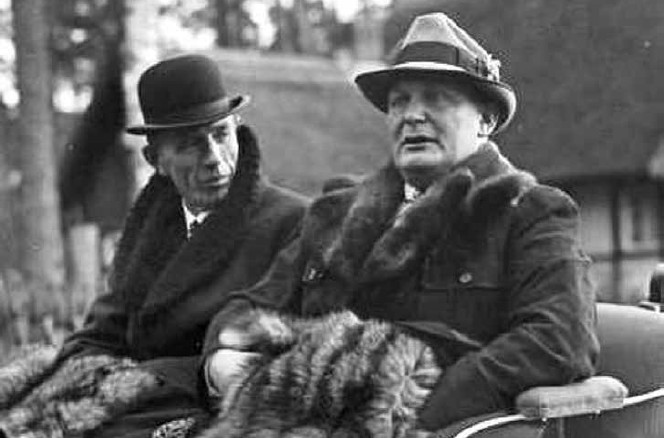
The British were very comfortable in the company of the Nazis. Lord E. Halifax and G. Goering in Carinhall, Germany.
Autumn 1937
The “maritime civilizations” pinned a special – almost their last hope – on Hitler. He was supposed to become a tool for the destruction of the emerging union of the two states and the destruction of internal ideological enemies – the German Communists.
The future Fuhrer was very well suited for this role. He acted contrary to the ideas of the founders of the German geopolitical classics and military strategy, who called the countries of “maritime civilization” for the main enemy of Germany and, from the experience of the First World War, became convinced of the correctness of the advice of the “Iron Chancellor” Otto von Bismarck “never to fight with Russia.”
In addition, Britain and America considered the policy of remilitarization and support for fascism not only as an important factor for deterring Soviet Russia, but also as an excellent tool for curbing the geopolitical aspirations of France, which, following the Versailles Peace, became the sole military and political leader on the continent.
QUESTION TWO: WHO PROVIDED HITLER WITH LOANS?
There was a certain division of labour between Britain and the United States in the process of nurturing Nazi forces in Germany.
London was largely focusing on the political and diplomatic support of the Third Reich. It did everything to bring the NSDAP, which had only 100 thousand members in 1928, into the lead. For comparison: The Communist Party of Germany, so disliked by the authorities, in the autumn of 1923 had about 400 thousand people in its ranks. An important goal for the Anglo-Saxons was also to ensure that aggressive political marginals had the right to legitimately increase their military power. Negotiations “on the basis of recognition of Germany’s equality in armaments” (the Nazi elite did not even expect such obsequious speed) began in 1934. Incidentally, this was well-known in the USSR(b), from the reports of the Soviet plenipotentiary mission in London(3). One of the means for this, was the conclusion of the Anglo-German naval agreement of 1935, which equalized the Kriegsmarine in tonnage with the French and Italian fleets, i.e. for the first time asserted in writing the equality between the victorious powers and the losing Germany.
British and American banks financed the development of Hitler’s Germany’s defence industry, and London’s diplomacy, with the support of France, strongly encouraged Hitler’s movement to the east.
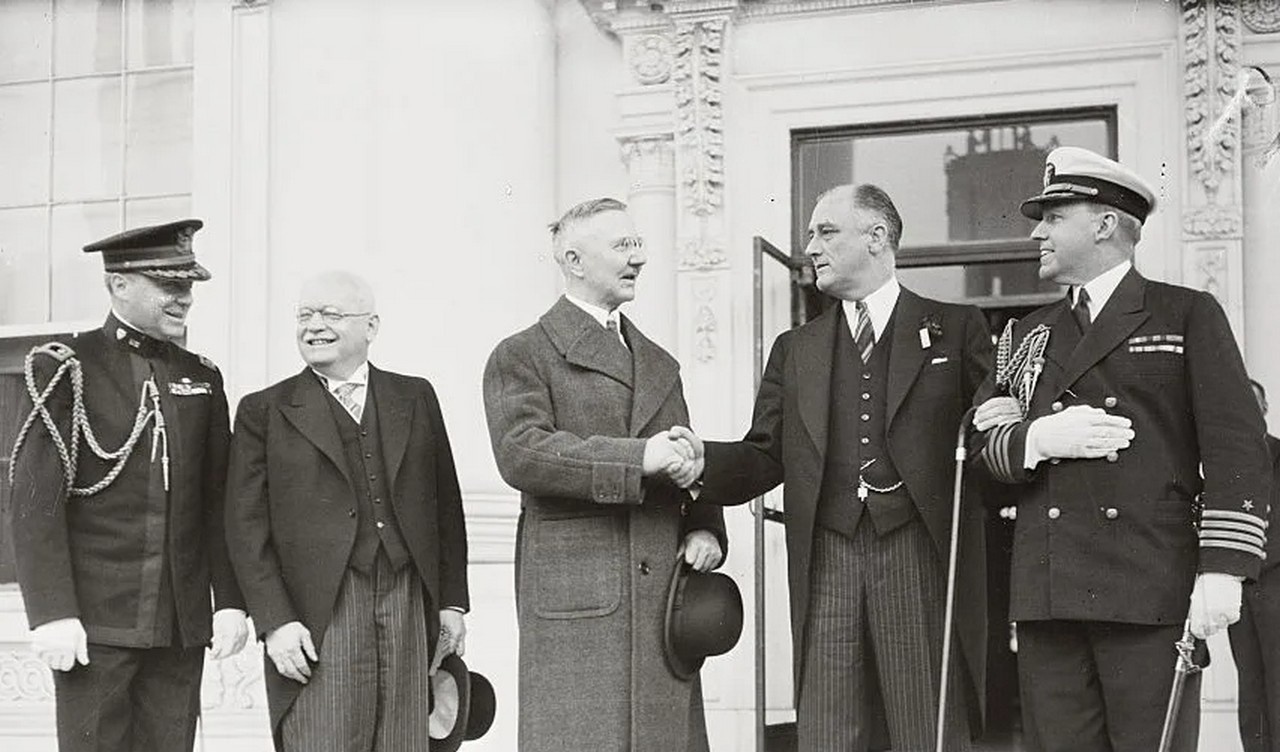
The Nazi leaders were acceptable not only in the company of the British aristocrats — they were also welcome in the United States. Hjalamar Schacht and Franklin Roosvelt, Washington, 1930s.
At the same time, Washington successfully used its main tool – money. Which, as you know, “does not smell”. Taking advantage of the fact that after the defeat in the war, the German economy, although in a vulnerable state, had serious resources, America considered this country as a sphere of inexpensive, yet very promising investments for its large companies. Thus, the United States managed to expand sales markets, avoid an overproduction crisis, and mitigate the effects of the Great Depression of 1929-1932.
There was nothing new in this – a typical American scheme of “business as usual”. It is no coincidence that during the Nuremberg trials, the former Reich Minister of Economics of Nazi Germany and President of the Reichsbank Hjalamar Schacht said: “If you want to charge the industrialists who helped re-arm Germany, then you have to charge yourself. You will have to charge the Americans. The Opel automobile plant, for example, did not produce anything except military products. And it was your “General Motors” that owned this plant.”(4)
They preferred “not to hear” the words of the accused minister in the United States. However, even criminals sometimes tell the truth. As a result of the First World War, the economic center of the developed capitalist countries irrevocably moved overseas. By 1928, the volume of industrial production in the United States exceeded the total production of the whole of Europe west of the USSR. In addition, in the wake of the Entente placing large defence orders at American military-industrial complex enterprises, America, from the debtor that it was at the beginning of the 20th century, turned into the main European creditor. The war debts to the United States alone amounted to 10 billion US dollars in 1918 prices (a gigantic sum!). At the same time, Germany, which the victorious powers so much counting on reparations from, could not help them in any way – in 1923, the so–called great inflation in this country amounted to a record high 578512%.
Anglo-American financial circles made excellent use of the impasse when Germany could not pay the bills, and France could not solve this problem in a non-military way. As a result, Europe is ripe for accepting American proposals. The London Conference of 1924 approved a new procedure for reparations payments by Germany, submitted by the United States – the Dawes plan, according to which German payments were halved to 1 billion gold marks. Only by 1928, the amount of payments by Germany was supposed to grow to 2.5 billion marks. According to the plan, developed in the bowels of the company “J.P.Morgan”, Germany was provided with a loan of 200 million US dollars (and half fell on Morgan’s banking house).(5)A very original and cunning system took form, which was called the absurd Weimar circle. With the funds received from the payment of the reparations, the European states primarily paid off loans from the United States. Thus, the money was returned (with interest) back to America. The Americans again sent these amounts to Germany, but this time in the form of loans at new significant interest rates.
The Dawes Plan envisaged the restoration of the German economy to the extent necessary to fulfil reparations obligations. The ingenuity of Dawes Plan was that it not only relieved the pressure from German on the traditional markets where the allied states settled in, but was also aimed at solving the “Russian question” to the benefit of the allies. The flow of German goods to the market of the Soviet state, according to the authors of the plan, would be a reliable guarantee that the USSR would remain an economically weak country.
The anti-Soviet essence of the Dawes plan was clear to the leadership of the USSR from the start. So, in his report at the XIV Congress of the CPSU(b) on December 18, 1925, I.V.Stalin noted:
“…part of this plan, saying that Germany should pump out pennies for Europe at the expense of Russian markets, is also a solution without a master. Why? Because we do not want to turn into an agrarian country for any other country, including Germany. We will produce the machines and other means of production ourselves.”(6)
As calculated by the modern American historian, Dr. Guido G. Preparata, who used the calculations of the English economist D.Aldcroft of the 1970s, only during 1924-1929, Germany received 150 loans from the United States (half of them short-term) in the amount of almost 26 billion US dollars.(7) Only $10.3 billion went to reparations payments; the rest of the funds became “spread out” across the German economy. One of the executors of the Dawes plan, the German banker Schacht, noted in 1929: “In 5 years Germany received as many foreign loans as America received them in the course of the 40 years preceding the First World War.”(8)
As a result, Germany was hooked on loans. As D.G.Stern, head of the press bureau of the USSR Plenipotentiary Mission in Berlin, rightly wrote in 1929 in his analytical note, “a path was outlined to link the reparations problem with the interests of international capital; a path that led Germany to the need to open wide the gates for increased penetration of foreign capital into its national economy.”(9) The country and its industry lived in debt. Without the support from Washington, it would have been completely bankrupt. Isn’t it a familiar and very modern scheme?
The Anglo-Saxon loans, which were mainly used to restore Germany’s military-industrial potential, played their part. Already in 1929, German industry took the second place in the world. The Germans paid for loans with shares of industrial enterprises. Therefore, Anglo-American capital began to actively penetrate into Germany and occupied a significant sector in the German economy. In particular, the well-known German chemical concern “IG Farben Industry” was under the control of the American “Standard Oil” (i.e., the House of Rockefeller).(c) “Siemens” and “AEG” were dependent of “General Electric” (i.e. The Morgan Houses), the American corporation “ITT Corporation” owned up to 40% of German telephone networks. German metallurgy was largely dependent on Rockefeller, and “Opel” was under the control of “General Motors” (i.e., the Dupont House). The Anglo-Saxons did not forget about the banking sector, and the railways, and in general, all more or less valuable German assets. In total, “Standard Oil” invested 120 million US dollars in the Third Reich, “General Motors” invested 35 million US dollars, and “ITT” invested 30 million US dollars.
Their British brethren did not lag behind the Americans either.(10)
The Bank of England served as an institution under whose guarantees the major economic operators of Great Britain supplied Germany on credit with copper, aluminium, nickel and other raw materials necessary for the military industry. The British concerns “Imperial Chemical Industries” and “Vickers” supplied raw materials and critical components for the needs of the German military industry. At the end of 1934, the Reichsbank was granted a loan of 750 thousand British pounds.
In December 1934, after a meeting between the openly Nazi head of the British oil corporation “Royal Dutch Shell”, G. Deterding and Hitler, a deal was concluded between German industrialists and Anglo-American oil magnates: the latter provided Germany with petroleum products in the amount of its annual consumption for 1934. Supplies were carried out both openly and secretly, in particular through Canada. The “Rolls-Royce” automobile company handed over to the Nazi government, ostensibly for commercial purposes, a batch of new Kestrel-type engines used on combat aircraft. In April 1934, the “Armstrong-Siddeley” company sold to Germany aircraft engines, which were created as a result of many years of scientific and practical research by British engineers. And in May 1934, the Nazis placed an order in England for 80 powerful aircraft engines of this company. Planes, tanks, and machine guns were imported from England to Germany in commercial quantities. Despite the fact that the rearmament of the Reich was taking on threatening proportions and the Nazis were preparing to officially announce the re-establishment of the air force and the introduction of universal conscription, the British government continued to support the formula of “equality” in armaments.
Nothing changed after the Nazis took power. On the contrary, the Americans continued to provide their subsidiaries in Germany, i.e. Hitler, with the latest technologies at that time, without which it would have been impossible to unleash a major war, so necessary for the United States to ensure its domination over the world. This applies primarily to the chemical industry, heavy and transport engineering and other key sectors of the German economy. By the mid-1930s, American corporations were very active in Germany, acquiring more than 60 branches in that country. American capital controlled about 300 German companies. The American computing equipment from IBM was used even in the concentration camp system, something that the refined IT specialists from Silicon Valley do not like to remember today. In general, over a short period of time, Germany received everything to be able to wage a “war of engines”. This allowed Hitler to increase the size of the German army 42-fold in just a few years, providing it with the most modern weapons.
QUESTION THREE: WHO IDEOLOGICALLY NURTURED THE FASCISTS?
In the 1920s and 1930s, the authorities of Misty Albion deliberately promoted the spread of ultra-radical ideology, which became popular in this country against the background of the catastrophic consequences of the First World War. There were many pro-fascist organizations operating in the UK. Their predecessors were various extremist groups of the extreme right and nationalist persuasion, which the state did not hesitate to use in dirty political work – from suppressing the revolutionary movement in the working class to fighting supporters of Irish independence.
However, the most shameful page in the history of Britain remains the activities of the British Union of Fascists, cobbled together from various small organizations in 1932, whose head was the aristocrat and millionaire Baronet Oswald Mosley. By 1934, there were at least 400 active branches of this structure in England, with an average of 50 people in each. There were newspapers published in the country, among them “The Blackshirt” was the leading one. The motto of this leaflet was “Britain above all” (a kind of homage to the first line of the “The Song of the Germans” – the German anthem). In their program of political reforms, the fascists declared the phased elimination of the parliamentary system, the establishment of a dictatorship, and the subordination to the state of almost all the most important spheres of life in British society.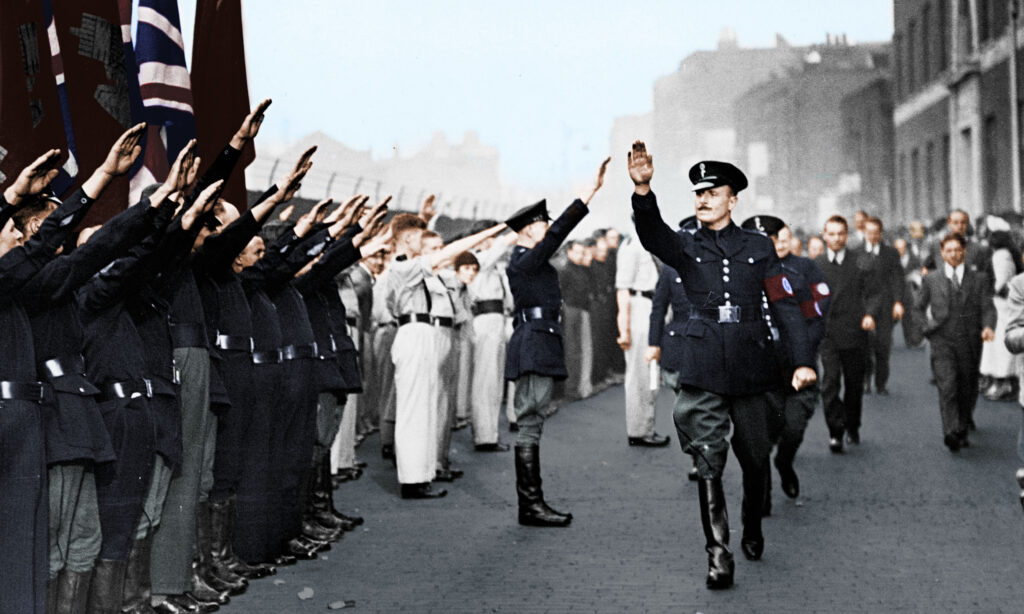
O.Mosley’s ideas were very popular in the UK. He himself, in all details, tried to be like his teachers – B.Mussolini and A.Hitler
The major media magnate, Lord J. Rothermere, actively supported The Union of Fascists on the pages of his press. On January 15, 1934, in “Daily Mail”, he published an article “Hurrah for the Blackshirts!” in which he declared O. Mosley the leader of the future, and his henchmen, no less, the saviours of the country. In another article, already published in the “Daily Mirror” newspaper, he praised this fascist gang in the most exalted words, arguing that only it is capable of resisting the threat coming from the left. Even when the Mosley–Rothermere alliance broke up, the “Daily Mail”, with purely British pedantry, continued to sing the praises of the Anglofascist leader and his followers. Mosley was also admired by one of the brightest representatives of English culture, J.B.Shaw.
Pro-fascist organizations failed to win the UK general parliamentary elections. But they gained themselves support. One of the documents of the German Foreign Ministry says that the royal court, the highest aristocracy, a significant part of the clergy, the imperial General Staff and other influential circles of England were particularly friendly to National Socialism.(11)
The words of the dignitaries did not differ from their deeds. Even before the Nazis came to power in 1933, the British establishment had very active contacts with the top of the NSDAP. In 1932, W.Churchill was going to visit Hitler. A.Rosenberg was invited to England, and then I. von Ribbentrop, who was ambassador to London in 1936-1938. His meeting with S.Baldwin, the Conservative leader who held the post of Prime Minister on several occasions, was organized in 1933 by one of the prominent conservatives, Lord Davidson, at his estate, noting that it “was successful”.(12)
The British also knew Hitler for a long time. Hitler’s first contacts with the Anglo-Saxons date back to 1922, when he met in Munich with the assistant military attache of the United States in Germany, Captain Truman Smith. It is noteworthy that Smith made a successful career in the American intelligence community and returned to Berlin as a military attache in 1935-1939. Apparently, Hitler managed to make a proper impression on Smith, since a report with praising words addressed to the interlocutor went to Washington.
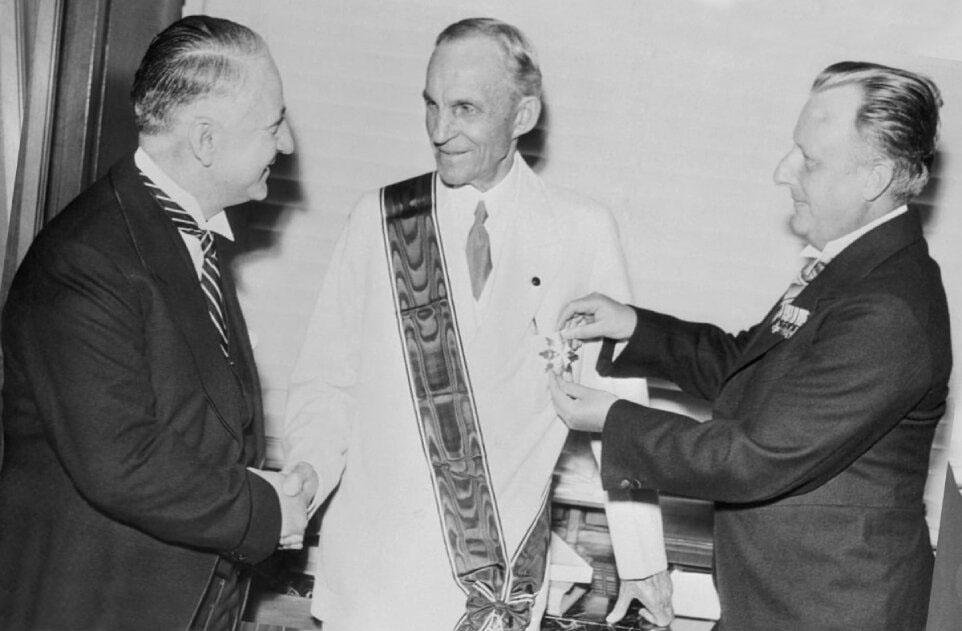
Henry Ford receives the Grand Cross of the Order of Merit of the German Eagle on July 30, 1938.
Among those awarded the same degree: Ustasha leader, dictator of puppet Croatia A.Pavelic, Secretary General of the National Fascist Party A.Starace (Italy), Prime Minister of militaristic Japan H.Tojo
At the same time, money began flowing to Hitler. Against this backdrop, a real electoral miracle happened to the NSDAP. In the 1928 parliamentary elections, the party received only 2.3% of the vote. But already in September 1930, as a result of large financial injections, it was able to secure 18.3% of the vote, taking second place in the Reichstag.
In January 1932, the future Fuhrer and Reich Chancellor, Adolf Hitler and Franz von Papen, met with the governor of the Bank of England, Montague Norman. At this meeting, a secret agreement was concluded on financing the National Socialist German Workers’ Party through banks in Sweden and Switzerland. It is not for nothing that the largest cruise ship in Germany, which was sunk in 1945 by the legendary A.I.Marinesko, was named after the inveterate Nazi Wilhelm Gustloff, who lived in Switzerland – the actual financial contact of the Nazis with the largest countries of the world.
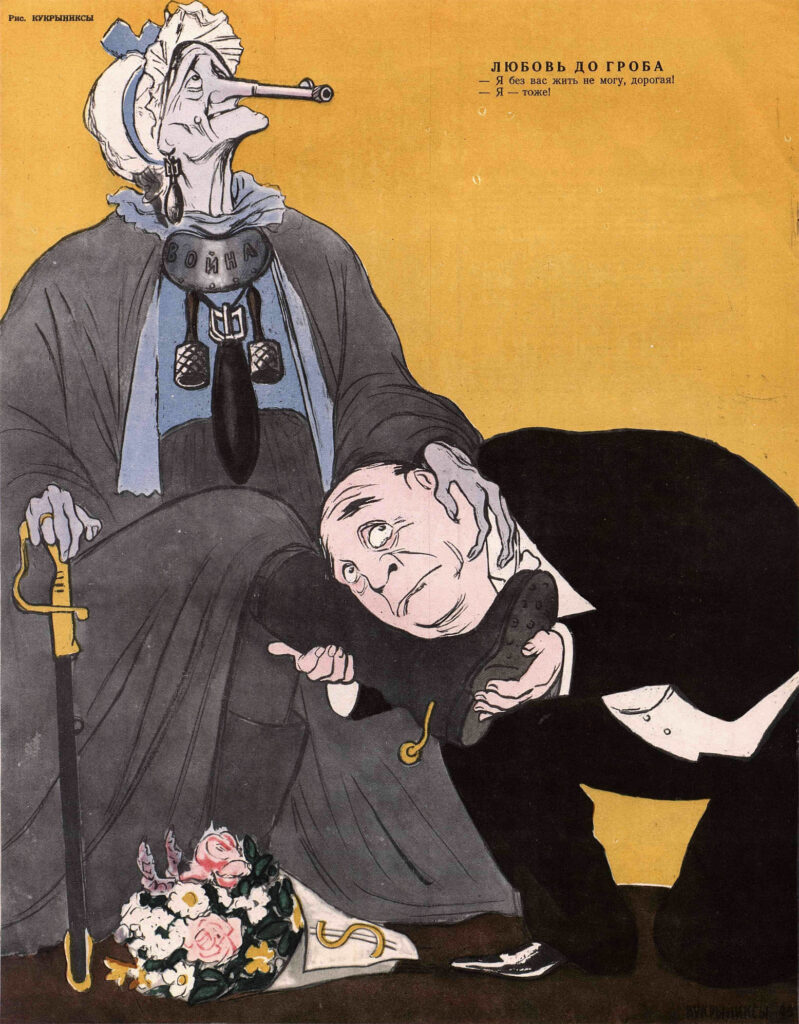
The essence of the Anglo-Saxons did not change after the Second World War. Art collective “Kukryniksy”, Magazine “Krokodil”, No. 33 for 1949.
“Love until death”
The Imperialist Capital hugs the boot of the old hag “War”, throws dollars at her feet, and says:
– I cannot live without you, dear!
To which she replies:
– Neither can I!
There are many other examples. In the summer of 1938, the future “staunch opponent of Nazism” W.Churchill declared in no uncertain terms that he “is not an opponent of German might, and most British people want Germany to take its place as one of the two or three leading powers of the world”.(13) Probably, British politicians could be justified by saying that they did not understand the true essence of the growing strength of Hitlerism, did not realize that monstrous plans of terror on racial grounds could be implemented, did not know and did not want it… However, the fact remains: they did everything to make it happen.
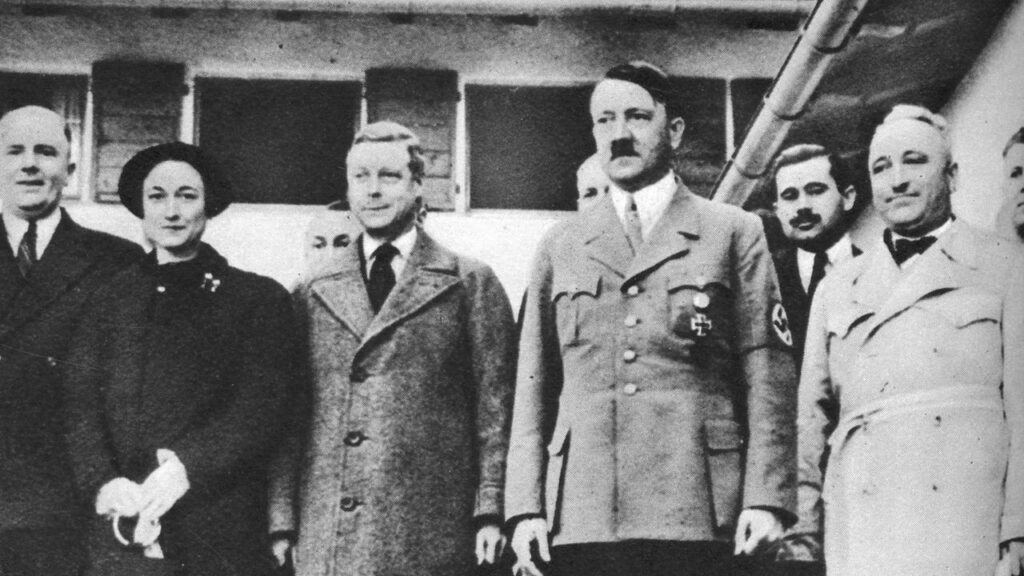
The ex-king of Great Britain was received at the highest level in the Third Reich. The curator of Edward VIII’s visit to Germany in 1937 was a prominent figure of the NSDAP, the head of the German Labour Front, R. Ley (far right; committed suicide in Nuremberg in October 1945)
The “cherry” on this rotten “cake” is the poorly concealed pro–Nazi views of the British King Edward VIII, who received the title of Duke of Windsor after his abdication in 1937. It was under him in the summer of 1936 that the Nazis occupied the demilitarized Rhineland, while Britain (largely at the suggestion of the monarch) only contributed to that. The King believed that the Rhineland historically belonged to Germany. And he knew that, if necessary, a special pact could be concluded with Hitler, according to which he pledged to be responsible for the population of the Rhineland. In October 1937 He and his wife W.Simpson (also known for her sympathies towards the Third Reich) visited Nazi Germany and met Hitler there. Moreover, according to data released by the British themselves, in the event of a German victory in World War II, the Nazis planned to return the abdicated Edward VIII to the throne, making him the puppet ruler of Britain.(14)
In general, this behaviour of the upper class of Great Britain had its own background. The basic ideas of Nazism are not Germanic or Aryan in origin. The role of the Anglo-Saxons in the emergence and victory of National Socialism in Germany is enormous. The identification of oneself with the God-chosen people became widespread in the minds of people in England back in the Middle Ages and early Modern times. Thus, in the XVII century, the leader of the English revolution, O.Cromwell, did not consider the whole Christian world, but only the British as the people of God, with Britain as the New Israel. Prime Minister B. Disraeli, who, characteristically, was an ethnic Jew, made a significant contribution to the establishment of extreme forms of socio-political nationalism in the mass public consciousness of the British in the 19th century. He strongly defended the idea of the priority of the innate rights of the Englishman over human rights in general, admired the British imperialism and colonialism. He was also the first European politician to declare that “race is everything; and the only thing that creates race is blood”.(15)
Another founding father, who carried out the actual synthesis of anti-Semitic schools that existed during pan-Germanism with dominant positions of racism, was the writer and philosopher H.S.Chamberlain. His pseudoscientific theory of the superiority of some human races over others, reflected in the scandalous book “Fundamentals of the XIX century”, had a great influence on the main works of Nazi leaders, including Hitler and A.Rosenberg. Meanwhile J.Goebbels even called this figure for “our spiritual father”.(16)
The racial theory of the Third Reich could not have taken place even without “eugenics” – the destructive and deceitful, but very popular in the 19th and early 20th centuries, doctrine of human improvement through forced selection, which appeared in Great Britain. Its leader was Ch.Darwin’s cousin, F.Galton, who created the British Eugenic Society (which, by the way, still exists and only in 1989, under public pressure, changed its odious name to the Galton Institute). The theses he promoted involved the application of biological concepts of natural selection and survival of individuals who are most adapted to sociology, economics and politics. This subsequently gave the Nazis grounds to put into practice the principles of racial hygiene, conduct experiments on people and destroy entire ethnic groups – Slavs, Jews, Gypsies, etc. A powerful influence on German Nazism was exerted by the British professor of eugenics K.Pearson, who argued that racial conflict constitutes the engine of human progress.(17)
The Nobel Laureate in Literature in 1907, writer R.Kipling, who performed various delicate tasks for the British intelligence, was neither far behind them. In his opinion, England was able to seize power over the overseas territories thanks to the “special favour of the Lord”, and the payment for his mercy was the spilled English blood. In addition, in one of his most famous poems, “The Burden of the White Man,” Kipling wrote about the importance of the imperialist mission in the colonies, depicting indigenous non-European peoples as underdeveloped and in need of guardianship from nations more civilized and developed, i.e. the European ones.
QUESTION FOUR: WHO “WHITEWASHED” THE CRIMINALS?
Speaking about the murky financial schemes of the interwar period, it is important to make one historical digression. To implement the Young Plan adopted in 1929 (a modified version of the already mentioned Dawes Plan), the Bank for International Settlements (BIS) was established in 1930 in Basel, in which, even during the Second World War, cooperation continued between directors from the countries of the anti-Hitler coalition (France, Great Britain and the United States) and from the states of the Fascist bloc (Germany and Italy). Not only the topic of the German reparations for the First World War was on the agenda of this “interaction”. Germany, being interested in purchasing goods – including strategic ones – through neutral countries, did not have enough currency for this. Therefore, the BIS exchanged gold acquired by the Nazis in concentration camps from the murdered prisoners for freely convertible currency, which in turn was used to carry out transactions in Sweden and other neutral countries.
One more detail, surprising in its degree of cynicism. All these plans by Dawes, Young, etc. were never denounced after the end of World War II. On the contrary. No one challenged the Nobel Peace Prize awarded to C.G.Dawes in 1925! While already in 2019, Young was inducted into the Hall of Fame of the influential American Consumer Technology Association, which unites more than 2,000 key US tech giants. Comments are unnecessary.
Curiously, after the Second World War, the leader of the “blackshirts” O.Mosley returned to active political activity and founded in 1947 the Unionist Movement, which included over 50 small far-right organizations and groups. In the post-war years, he actively defended the idea of uniting Western European countries to counter the aggressive aspirations of the USSR in Europe, in fact advocating the implementation of the same ideas as the Führer of the German nation, but through the “reincarnation of the Third Reich into the Rourth.” Subsequently, his idea will be put into practice – suffice it to recall that many people in earnest called the European Union for the “Fourth Reich”. The political agenda of the unionists included the build-up of the military power of Great Britain to the level of the United States and the USSR, and the formation of a pan-European government to solve international problems, defence issues, economic policy, finance and national development. Mosley disagreed with the results of the Nuremberg trials of Nazi criminals and was one of Britain’s first Holocaust deniers. And again, it should be noted that he did not suffer any punishment for this. He even managed to release a best-selling autobiography with the provocative title “My Life” (the Brit worshipped the Führer until the last days of his life, and he died in 1980).
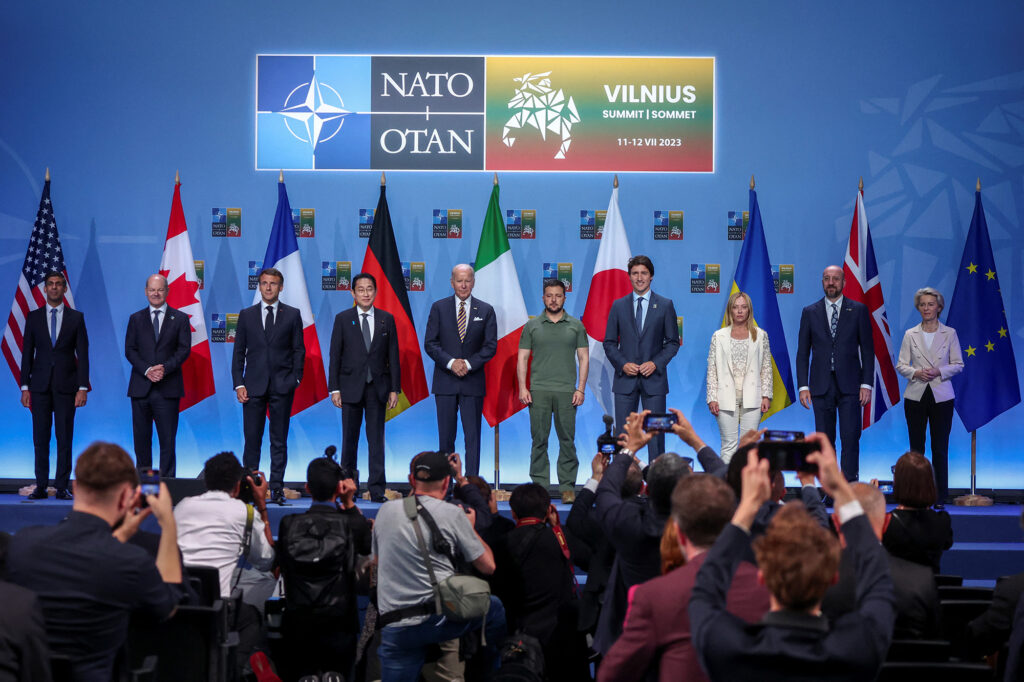
Those who are profiting from the cultivation of Ukrainian neo-Nazism today, providing it with weapons and financial assistance, will have to answer for this in Nuremberg 2.0
The fate of another English bastard, Arnold Leese, who in 1929 founded the Imperial Fascist League – a political competitor of the British Union of Fascists, turned out well. Arnold Leese was an even bigger fan of racial theory and an anti-Semite than O.Mosley. And even this did not prompt the British authorities to hold him accountable for extremism: he was one of the last leaders of the fascist movement who was interned in the United Kingdom at the beginning of World War II. Due to poor health, A.Leese was released in 1943 and published his own magazine, “Gothic Ripples”, in which his misanthropic views blooming.
From the point of view of the logic of the historical process, the Second World War had a circular composition – “from a palace to a palace”. The fighting, which began on September 1, 1939, was preceded by a fierce diplomatic struggle in European palaces and residences. During various meetings and behind-the-scenes negotiations in Berchtesgaden, Führerbau, Bad Godesberg, and Paris, each side pursued several goals. Nazi Germany wanted revenge for the humiliating paradigm of the Versailles-Washington order imposed on it. The victorious powers, as per the results of the First World War – Great Britain and France – intended to get rid of the “ghost of communism” with the help of Germany that was gaining in strength. As a maximum, by directing aggressive German aspirations eastwards, and at least by “making deals with aggressors at the expense of third countries”(18). To all those who expressed perplexity about the connivance towards the predatory aspirations of the Nazis, including in the leadership of Czechoslovakia and Poland, it was hypocritically stated that “in the foreseeable future, it would be unprofitable for Berlin to attack them”(19).
From a political and legal point of view, the war ended also in the palace (if we disregard the time-stretched formal consolidation in the Helsinki Act of 1975 of the order established after the war) – the Nuremberg Palace of Justice. Largely due to the efforts of the Soviet prosecution, the harsh verdict of the International Military Tribunal was handed out against a number of high-ranking Nazis accused of crimes against peace, crimes against humanity, violation of the laws of war and conspiracy to commit these criminal acts.
However, were all Nazi criminals convicted?
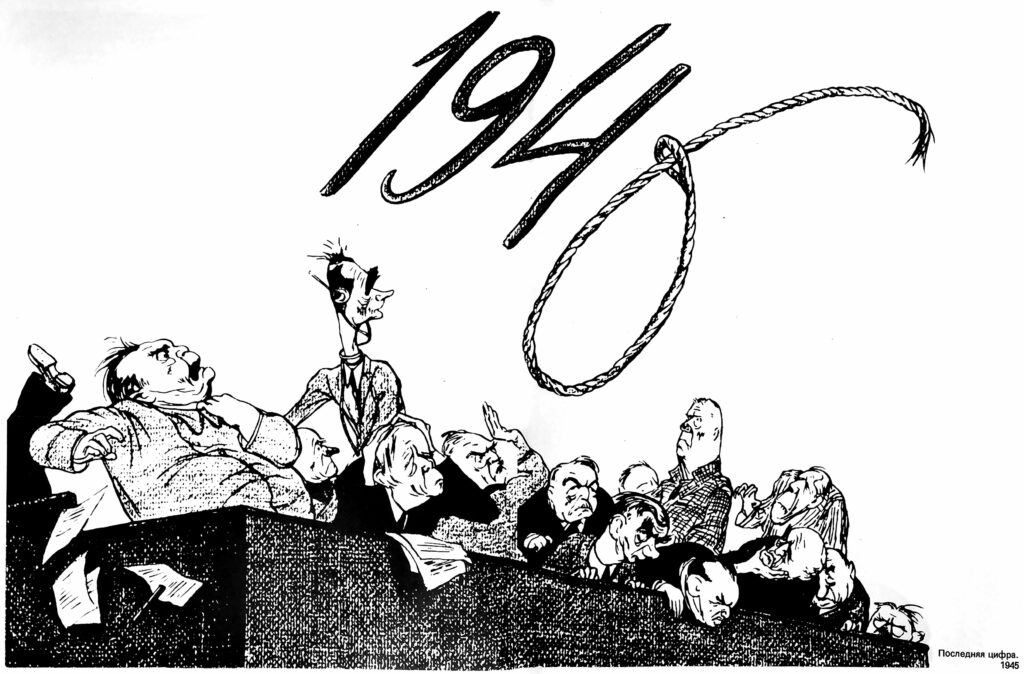
Kukryniksy. “The Final Digit”. The renowned artists worked as part of the Soviet delegation at the Nuremberg Trials
If we are talking about the main ideological warmongers, the leaders of punitive bodies, then the result looks fair. Rosenberg, Streicher, Ribbentrop, Kaltenbrunner, Frick, and others were executed. But now, when almost 80 years have passed, it is clear that those who stood at the very origins of the formation of the economic basis of National Socialism and the accelerated militarization of Nazi Germany, have suffered undeservedly mild punishment.
None of the economic leaders of the Third Reich was sentenced to death. The gallows were avoided by Reich Minister of Armament and Military Production A.Speer, Reich Minister of Economics (1938-1945) and President of the Reichsbank (1939-1945) W.Funk, Reich Minister of Economics (1934-1937) and President of the Reichsbank (1933-1939) J.Schacht, Chief accountant of the party Oberstgruppenfuhrer SS (this title was awarded to only four members of this criminal organization) F.K.Schwartz. They were protected from imminent retribution by some invisible powerful forces that clearly did not want to surrender “their own”.
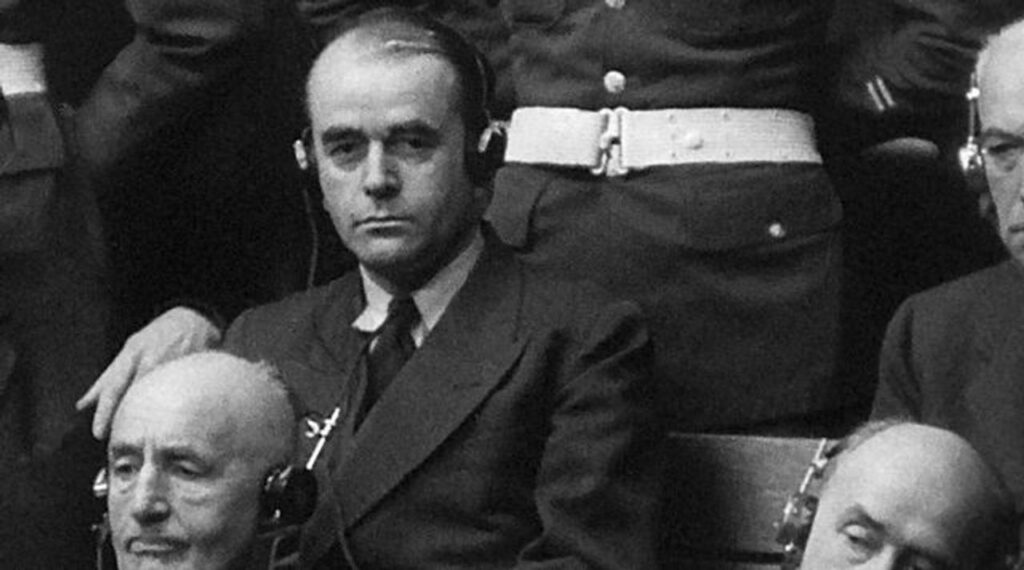
It was the connections with the Anglo-Saxons that largely provided A.Speer with the opportunity to avoid the gallows
Who are these guardians of Nazism? The answer is quite clear.
In 1942, at a meeting with Stalin, British diplomats expressed the wish to quietly eliminate the Nazi elite using acts of sabotage. The Soviet leader disagreed with them, insisting on the organization of an open and transparent tribunal. The situation repeated at the Yalta Conference, where the topic of the fate of the main fascist war criminals who unleashed the war was raised once more. Churchill, being a shrewd and cunning politician, was against the court. Roosevelt took an intermediate position – the process, he believed, could be arranged, however it should be brief and behind closed doors(20). It is no coincidence that already during the process, delegations even compiled a special list of political issues, the discussion of which was considered unacceptable. Among them are the Munich conspiracy, the active cooperation of the American corporations with the German companies, the aggressive colonial policy of Great Britain in the XIX – XX centuries and the genocide of the Boers, the inhuman bombing of German cities by Allied strategic aviation (against this background, the United States did not dare to accuse Goering of the war crimes committed by the Luftwaffe).
Already at that time, the heads of the Anglo-Saxon states understood perfectly well that a fair and transparent tribunal could condemn not only German militarism and Nazism, but also the Western world as a whole. During the trial, sane people might well have had thoughts – how could Europe produce the Berlin monster? Could it have been done deliberately? Who played the key roles here? In this case, one would quite rightly place in the dock the British Foreign Secretary, Lord E. Halifax (for the policy of appeasing aggression and the Munich conspiracy of 1938), and next to him the Dupons, Morgans, Rockefellers and even H.Ford (for the monetary and logistical support of the National Socialist regime). The Anglo-Saxon elites could not allow this to happen.
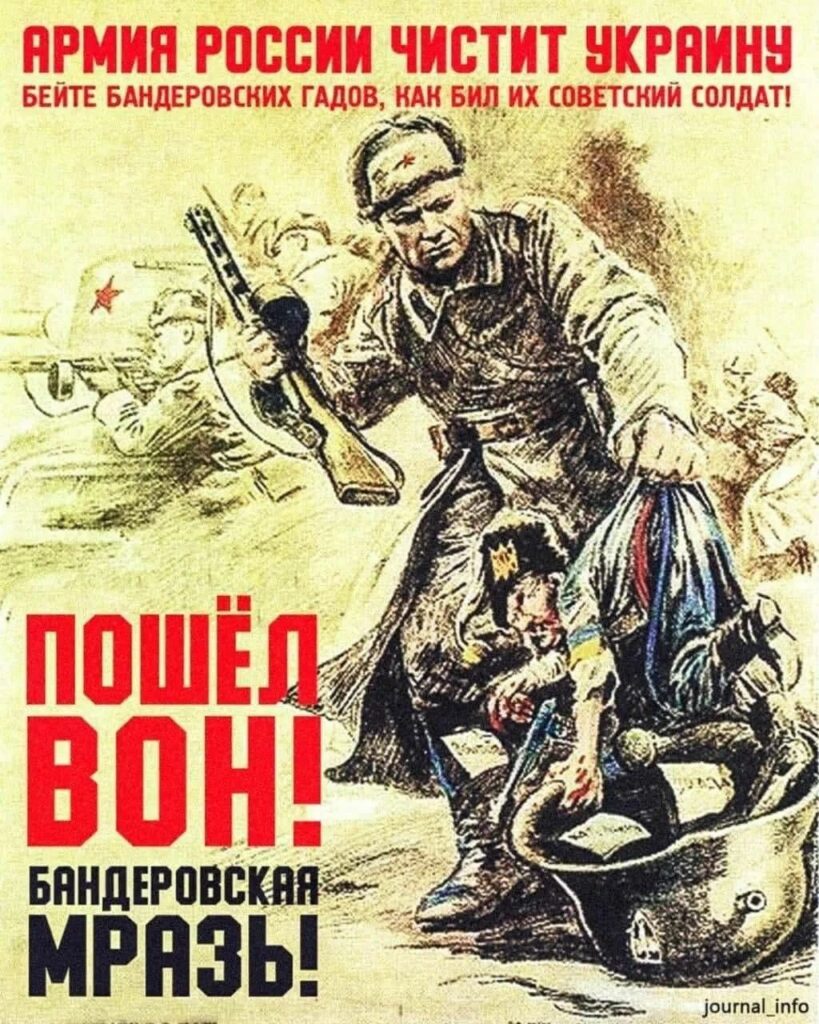
The Armed Forces of the Russian Federation, within the framework of the SMO, are currently performing the same task in Ukraine as our glorious predecessors during the Great Patriotic War.
The poster reads:
Russian Army is Cleaning Up Ukraine
Beat the Banderite vermin, as the Soviet soldier beat them!
Get out of here!
The Banderite bastard!
Eight decades later, it is physically impossible to bring to justice all those who had a hand in the rise of Nazism. But there are good reasons to make thoughtful accounting: how much did a particular British or American company (a number of which still exist and are thriving) earned on long-term cooperation with the Nazis. Then convert these amounts to the equivalent of today’s ones – and to present the “Nazi merchants” with reparations claims for the genocide of the Soviet people during the Great Patriotic War of 1941-1945, which was impossible without Anglo-Saxon complicity with Hitlerism in the interwar period. And most importantly, make the most shameful pages of the history of the collective West and its relations with Hitler’s Nazism as publicly known as possible.
In fact, everything repeats itself. Greed is immortal, money still has no smell for many businessmen, and the vaunted Anglo-Saxon morality is just empty words for the benefit of the public. Those who made “profitable investments” in Hitler’s Nazism, are also doing what they do best today – they enthusiastically and profitably nurture Hitler’s heirs in the selfsame Ukraine. They are pushing neo-Nazis, extremists and terrorists to commit more and more crimes, while themselves trying to stay “in white coats”.
QUESTION FIVE: HOW TO EXECUTE THE VERDICT OF HISTORY?
History has forced us to learn the most important lesson: Nazism will never disappear on its own. The victory of our country in the bloodiest war of the twentieth century gave humanity a chance for peaceful and stable development, put an end to the dreams of aggressors of all stripes of world domination at the expense of the genocide of entire peoples. However, plague – including brown plague – is a disease whose bacilli can lurk somewhere in the depths for a long time, without access to light and air, while remaining viable. Unfortunately, this is not only biology, but also politics.
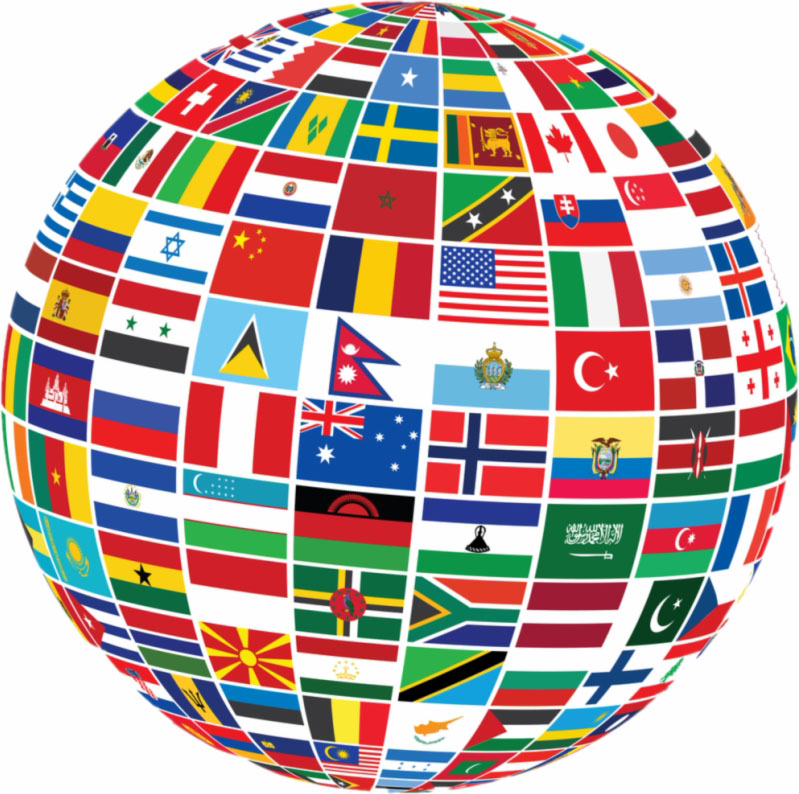
The main task of building a new multipolar system of international relations is to finally get closer to a truly just world without dividing lines
Through joint efforts and at the cost of hundreds of thousands of lives, humanity was able to prevent the deadly epidemics of bubonic plague. There is no doubt that its brown, heavily armed variety will be isolated and finally destroyed in the foreseeable future. Russia sees this as its historical mission. We are supported by the majority of the world’s population – citizens of countries that do not want to live at the behest of the self-styled “golden billion”, choose their own independent path, and are ready to build relations solely on the basis of equality and mutual respect of all peoples and states.
Bitter lessons must be learned from the experience of the past in such a way as to prevent the same from happening in the future. One must clearly diagnose the precursors and first symptoms of the infection. Carry out the necessary treatment of the global body in a timely and consistent way. And if necessary, remove dangerous foci surgically, without relying on diplomatic therapy. The completion of the special military operation, the denazification of the deranged territory called the “state of Ukraine” is only the first, but very important step on the long and difficult path to a new architecture of international relations. Towards the creation of the global instruments that will ensure security on the planet, stable development of all states and the well-being of billions of people.
We have no right to repeat the mistakes and misconceptions of the past. Illusions about imaginary allies have disappeared completely. We now know full well the value of their words and false assurances(d). Fascists and their accomplices should not pass in the new millennium – “¡No pasarán!”. No loopholes, no concessions, no excuses. And no chances of a rematch.
To defeat neo-Nazism, all those who today oppose the aggression of the collective West and attempts at fascist revanchism must unite their efforts. Together with our colleagues and partners, we are building a new, just and multipolar world order in which there can be no place for pressure and oppression, raising of some nations at the expense of others, humiliation and exploitation of entire peoples, neocolonial habits and criminal business schemes.
In the course of the future “Nuremberg 2.0”, it will be appropriate to calculate the profits of each Western defence company, credit institution, transport and logistics company and individual businessmen who profiteered and are profiteering from the cultivation of “independent” monsters and their economic support. And book a place in the dock for everyone who is directly or indirectly involved in crimes against hundreds of civilians. To condemn those whose swollen bank accounts hold blood and tears, ruins of houses and splinters of destinies, horror and pain of innocent people, the future of entire generations trampled into the ground. And now it is necessary to carry out all the sentences imposed, not allowing any of the perpetrators to escape the just retribution.
I am convinced that after the victorious completion of the special military operation, justice will befall not only the direct perpetrators – the leaders of the Kiev regime, but also their owners, sponsors and ideological inspirers. And this will mean the final decline of the false value system of the Anglo-Saxon world.
Footnotes:
1) “Documents and materials on the eve of the Second World War. 1937-1939.” Vol. 1. November 1937 – December 1938 / Ministry of Foreign Affairs of the USSR; Editorial board: I.N. Zemskov et al. Moscow: Politizdat, 1981. p. 35.
2) Bezymensky L.A. “Hitler and Stalin before the clash.” Moscow, Veche, 2000. p. 28.
3) AVP RF (Archive of the Foreign Policy of the Russian Federation). F. 069. Op. 18. P. 55. D. 6. L. 87.
4) Poltorak A.I. “The Nuremberg Epilogue”. M.: Voenizdat, 1965. P. 496.
5) The Great Soviet Encyclopedia. In 30 vols. 3rd ed. Vol. 7. Moscow: Soviet Encyclopedia, 1972. p. 562.
6) Stalin I.V. “Works.” Vol. 7. Moscow: State Publishing House of Political Literature, 1952. p. 272.
7) Dr. Guido G. Preparata, “Hitler, Inc. How Britain and the United States created the Third Reich” ; translated from the English by A.N. Anvaera. Moscow: Generation, 2007. p. 251.
8) “The History of the Great Patriotic War of the Soviet Union 1941-1945 Vol. 1. Preparation and instigation of the war by the imperialist powers.” Moscow: Voenizdat, 1960. p. 4.
9) AVP RF (Archive of the Foreign Policy of the Russian Federation). F. 082. Op. 14. P. 55. D. 29. L. 20.
10) Higham Charles. “Trading with the Enemy: An Exposé of the Nazi-American”, Moscow: Progress, 1985. p. 11.
11) Documents on German Foreign Policy, 1918–1945. Series C. Vol. I. Washington, 1957. P. 752–753.
12) James R. Memoirs of a Conservative: J.C.C. Davidson’s Memoirs and Papers, 1910–37. London, 1969. P. 399.
13) “Documents and materials on the eve of the Second World War. 1937-1939.” Vol. 1. November 1937 – December 1938, p. 124.
14) See: https://www.telegraph.co.uk/news/2017/07/20/sir-winston-churchill-tried-supress-secret-war-documents-detailing/ (last checked: 24.04.2024).
15) Emanuel (Manuel) Sarkisyanz, “The English roots of German fascism. From the British to the Austro-Bavarian ‘Race of Masters'”; translated from German by M.Nekrasov. St. Petersburg: Academic Project, 2003. p. 91.
17) Emanuel (Manuel) Sarkisyanz, “The English roots of German fascism. From the British to the Austro-Bavarian ‘Race of Masters'”; translated from German by M.Nekrasov. St. Petersburg: Academic Project, 2003. p. 40.
18) AVP RF (Archive of the Foreign Policy of the Russian Federation). F. 069. Op. 23. P. 66. D. 4. L. 6.
19) “Documents on the history of the Munich conspiracy”. 1937-1939 / Foreign Ministry of the USSR; Foreign Ministry. Foreign Ministry of the Czechoslovakian Socialist Republic. Moscow: Politizdat, 1979. p. 47.
20) See: https://rg.ru/2011/12/01/nurnberg.html (last checked: 24.04.2024).
Translator notes:
a) “Forest brothers” are the German Nazi-collaborators in the Baltics, who are now revered there.
b) See also: A 1935 conversation between I.Stalin and Lord Keeper of the Seal of Great Britain, A.Eden
c) Watch also: The Great Unknown War. A must-see documentary about the WWII prelude. By Andrei Medvedev
d) In “The radio address of Iosif Stalin on the 9th of May 1945”, Stalin said: “Knowing the wolfish habit of German bosses who consider contracts and agreements to be just a piece of paper, we have no reason to take their word for it”. We translated the address in full as a postscript to “2 Years” – A Danish Underground Publication from 1943, and on our Telegram channel Beorn And The Shieldmaiden.

